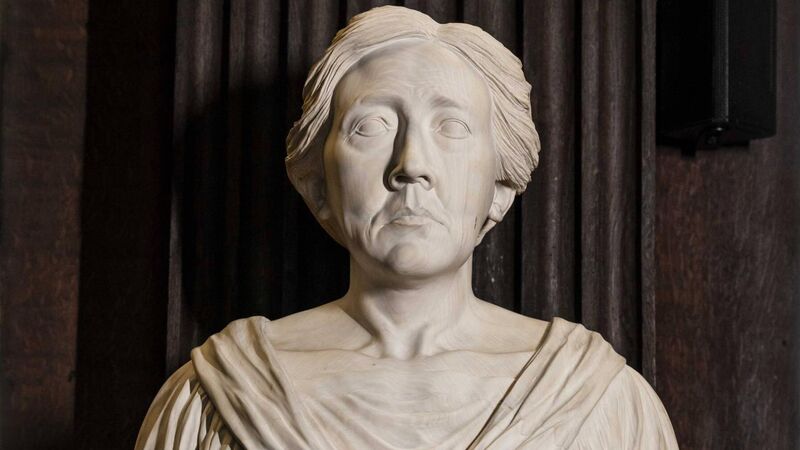New Trinity College sculptures to honour 'four outstanding women'

A new sculpture of Augusta Gregory by artist Guy Reid, one of four intalled in the Old Library at Trinity College Dublin on St Brigid's Day. Pictures: Chris Bellew / Fennell Photography
Trinity College has installed a series of sculptures in its Old Library to honour the scholarship of four trailblazing women.
The women represented are the scientist Rosalind Franklin, the folklorist, dramatist and Abbey Theatre-founder Augusta Gregory, the mathematician Ada Lovelace, and pioneering women’s rights advocate Mary Wollstonecraft.










